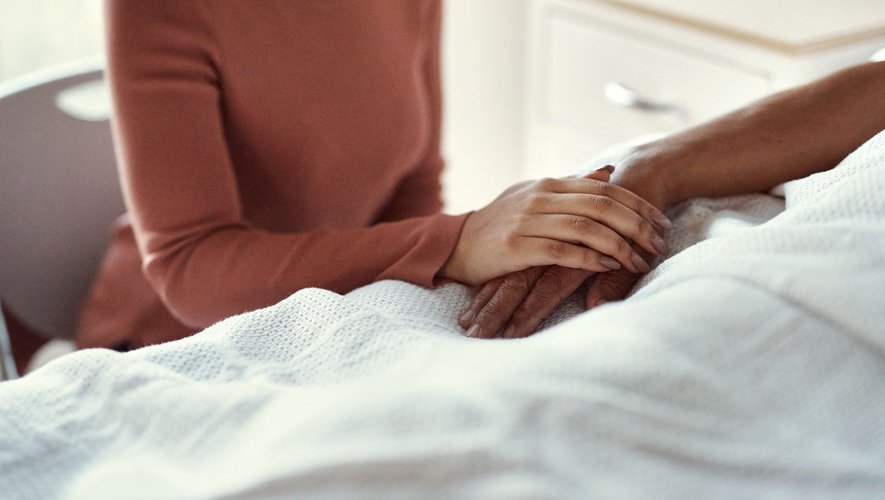(AFP) – Finding the right words to evoke imminent death, relieving suffering with simple gestures: “Last aid” training courses give keys to supporting a loved one at the end of life, a public utility approach for the organizers.
On a sunny Friday, a dozen participants gathered in Lambersart (North) to train, for six hours, in this accompaniment and thus lift a corner of the taboo of death.
“Palliative care is everyone’s business, the end of life is not just a medical question”, explains Dr Marie Danel, head of service at Saint-Vincent-de-Paul hospital in Lille, who intervenes in pairs with a palliative care volunteer.
With two other women and the support of the French Society for Support and Palliative Care (Sfap), this doctor is supporting the development in France of these training courses already present in around twenty countries. The North is a pilot region.
Chairs arranged in a circle, using familiarity, everyone wears a label with their first name. This is not a discussion group, but the testimonials, often poignant, enrich the training.
“I have apprehensions vis-à-vis death. My parents are old and I don’t feel ready at all”, introduces Pierre (all first names have been changed).
Bénédicte, who came with her husband, who was close to death because of a heart problem, has already accompanied three relatives. She is not looking so much for tools as for finding “the right posture to pass this course with the one who is going to leave”.
– Small gestures –
Right from the introduction, Dr. Danel puts the dots on the i’s: the subject of the day is not euthanasia, very present in the public debate, but it is available to discuss it.
“Our experience is that the request for euthanasia is rare and does not persist when the person is accompanied,” she summarizes. Requests for deep sedation until death, permitted in France since 2016, are also rare according to her.
The doctor says she agrees with Sfap’s position. This, opposed to the involvement of caregivers in causing death, demands universal access to palliative care.
The training addresses psychological and practical questions, but also legal ones, such as the appointment by the patient of a trusted person, referent of the medical team, and the drafting of advance directives detailing his wishes for the end of life.
“Experimenting with the support of a loved one at the end of life is often experiencing helplessness”, while we can relieve by small gestures, insists Dr. Danel.
The second speaker, Marie-Madeleine, describes the light massages of the forehead or the palm of the hand that she performs on patients.
– Intimate experiences –
A draft, a good position, but above all the calm and attentive presence of a loved one, who curbs his desire to “do something” at all costs, can bring comfort.
With the help of a moistened stick, the participants train themselves to perform mouth care, because dry mouth is a source of suffering at the end of life. This gesture can be reproduced several times an hour with water, fruit juice, even beer or champagne, smile the trainers.
A lighter moment within a day that stirs up intimate experiences. Eyes shine, a hand wipes away a tear.
Bénédicte shares the memory of her father’s peaceful death, shortly after she told him that he could leave, that he had been a good father and a good grandfather.
During the last hours of a patient, the rales are not the expression of pain, but if they are too difficult to hear, “you have to allow yourself to be relayed”, underline the trainers.
“I will be stronger, with clearer ideas next time,” says Marion, who accompanied her dying mother. “In anxiety, you’re not nice all the time. This training gives you a lot of perspective.”
Dr. Danel would like to see this training become widespread and integrate schools, such as those in first aid.

